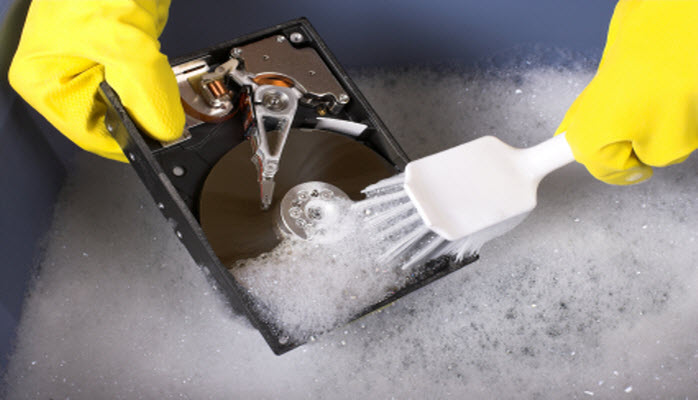At Veritus Group we look at a lot of data. In fact, before we do anything with either mid-level or major donor programs, we have to review donor data. Donor data tells us a story about donors. It reveals strengths and weaknesses. It shows us where there is opportunity.
Unfortunately, because we dive into data so often, we see the how messed up many non-profits’ data really are. It’s a shame, because Richard and I would estimate that the non-profit sector is losing millions of dollars every day because their donor data are either not in the correct database, the database is insufficient for mid and major gifts and/or data are not being put into the system correctly.
I know talking about donor databases is not really sexy. But if you really want to be a donor-centered organization, you have to get this right. Your donors deserve it, and if you want to properly steward their gifts, you need good data in a donor database that supports all the work you are doing with donors – from segmentation to recording the moves you make.
Richard and I feel so strongly about this that we’re asking you to make 2016 the year of the database. We believe that if you have a proper donor database with the best information about your donors, you will raise more money and serve them outrageously. Here are some thoughts to consider about donor data and the database that they reside in.
- You own your data. I cannot tell you how many non-profits are clueless about their own data. They outsource everything, from entering the data to producing reports. The database companies that provide these services are doing this originally with good intentions (I’m assuming), but it’s created a real knowledge void in our industry. The non-profit ends up paying extra for every report they want to run, or if they want to “add on” the moves management module, it’s a ton of money for them to do so. Then you find database companies who have conflicts of interests because they also do the actual marketing. So there is a bunch of pushback from these companies when some other company is hired to do the marketing for the mid or major gift portion of the donor file. It’s wrong, and our industry needs to stop this. What Richard and I are finding is that these database “owners” strong-arm their client into the belief that it’s not the non-profit that owns these donors, it’s the database provider. Let me tell you something: if you can’t carry out a particular strategy because your database provider says it can’t support you, I would get a new provider and move on. It’s an old paradigm, and it’s got to stop.
- Your database has to have the ability to track moves management. If your database does not have the ability to track where you are in your relationships with your donors, then either upgrade immediately or switch to a donor database that does. We have had so many clients that have insufficient databases where MGOs have to write notes about their donors either in some kind of excel format or even on paper files. This is absolutely insane. We feel so strongly about this that before you invest in personnel or some kind of new program, you need to invest now in a donor database that allows you to serve equally both a new $10 donor as well as a million-dollar donor who has been with you for 20 years. If your database cannot do this properly, then start shopping now. Think about it: years from now, when you are no longer at your non-profit, how is the next MGO going to know the history of the relationship of their major donors without good data and notes?
- Clean up your data. When we start working with organizations on their mid or major gift program, more often than not, we find a mess. Duplications, bad addresses, dead people, old codes in donor files that no one has a clue about, etc. I don’t think you realize how much money you are throwing down the drain by having “dirty data.” You have to clean it up. You have no idea how this affects your donors who give in the mid to major gift range, when you have wrong information about their account with you. Believe me, when a donor gets two pieces of the exact same mail appeal, or you spell their name wrong, it tells the donor you do not know them. Clean it up.
- Do e-mail and phone appends. In today’s environment there is no excuse for you not to have your donor’s email and phone number. Especially in the mid to major gift range of donors. You need to know your donors and allow them to communicate with you in a variety of ways. Now, some donors don’t want to relate with you over email or phone, and they will tell you that. But the vast majority of them welcome it. You are not intruding on them. I don’t understand the resistance by development directors who will not invest in conducting ongoing email and phone appends to their database. It makes no sense. This should be updated at least once per year.
- It must be easy to produce reports that are meaningful. Often times we’ll ask for reports on individuals and groups of donors on a caseload, and you’d think we asked to get the original copy of the Declaration of Independence – it’s almost impossible. Your donor database has to work for you, not the other way around. The ability to create on-demand reports without incurring an extra cost is a must. I’ve heard story after story of major gift officers who can’t get the right information about donors they are visiting, and the meeting turns horribly wrong. In fact, one MGO I know asked a donor for a $50,000 gift when the previous month that donor had given $100,000 and it hadn’t been recorded in the system correctly.
At the very least, you need your data to work for you, not the other way around. So to sum up, you want:
- In-house knowledge of your database
- Clean data
- The ability to track all moves with donors
- Up-to-date information
- Easy-to-produce reports that are meaningful to you.
Does your current database provide this? Do you have systems and procedures to ensure that your data are clean and up-to-date? I hope so. If not, make 2016 the year that you get your database issues cleaned up. It may not be sexy, but it will definitely make you more successful with your mid and major donors.
Jeff


![5 Reasons Why We Love Mid-Level, And You Should Too! [Podcast Episode]](https://veritusgroup.com/wp-content/uploads/2022/11/Podcast-Episode-Blog-Post-Header-Image-5.png)



Bravo! I hope you plan to publish a series of posts in 2016 that focus on organizations in the process of harnessing their databases to produce what’s needed to manage Major Gifts programs. It’s critically important to the success of gift officers and managers alike. Thank you for raising such an important topic.